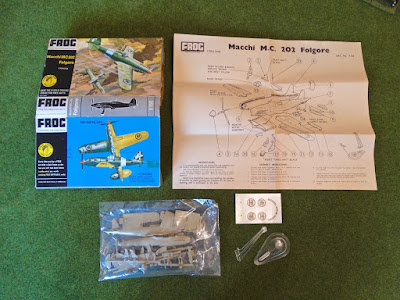With the lockdown situation still preventing face-to-face wargaming, I decided it was time for a solo Shadow of the Eagles playtest. I wanted a full-blown battle, and something a bit more interesting than lining up equal opposing armies on opposite baselines.
Deciding a nice Napoleonic scenario was needed, I came up with the idea of searching Google for 'Napoleonic scenarios'. Pretty clever, eh? And what should come up but exactly what I wanted, a blog called
'Free Napoleonic Scenarios'. My thanks to Greg Wagman, who created the site, for putting in the work in the first place and making it available online, and also for allowing me to reproduce the scenario map, shown below:
 |
| © Greg Wagman |
The scenario I chose is based on The Battle of Ostrolenka, which took place in the aftermath of the famous Battle of Eylau. Greg admits in the background to the scenario that it has been massaged a bit to make for a better game - which is entirely sensible. I did my own bits of massaging, mostly as the online scenario is for Age of Eagles, a set of rules which allow for multi-division battles. For my own rules, divisions would have to become brigades unless I wanted to have a very large table (which I didn't) and lots of players (which I didn't have).
Add to this mix the fact that SYW figures would stand in for Napoleonic French and Russians, and this becomes very much 'A Battle Based On Ostrolenka But Only A Bit Like It'. Nevertheless, the scenario (as you will see) makes for an interesting clash which would test out my rules nicely.
The Forces
French, General Savary. Orders - 'Seek out and destroy the local Russian forces'.
1. On table at start, deployed around Ostrolenka - Rielle's Brigade.
Infantry Brigade - 2 Infantry Battalions, 1 Field Battery.
Independent Hussar regiment.
2. Arriving turn 2, point A - Savary's Division.
Gazan's Infantry Brigade - 2 Infantry Battalions
Becker's Cavalry Brigade - 2 Dragoon Regiments
3. Arriving turn 5, point C - Suchet's Brigade.
Infantry Brigade - 1 Grenadier Battalion, 2 Infantry Battalions, 1 Field Battery.
Total, 12 units.
Russian, General Essen. Orders - 'Capture Ostrolenka and drive the French from the field'.
1. On table at start, deployed north of the 'sandy hills' - Essen's Division.
Orlov's Infantry Brigade - 2 Infantry Battalions, 1 Field Battery
Penza's Infantry Brigade - 2 Infantry Battalions
Independent Dragoon Regiment
2. Arriving turn 3, point B - Volkonski's Brigade.
Cavalry Brigade - 2 Hussar Regiments, 1 Field Battery.
Independent Jaeger Battalion
3. Arriving turn 5, point B, Sedmarkatzki's Division.
Korolev's Cavalry Brigade - 1 Dragoon Regiment, 2 Hussar Regiments
Bikov's Infantry Brigade - 2 Infantry Battalions
Total, 15 units.
For the appropriate Russian flavour, one of Sedmarkatzki's Hussar regiments should be Cossacks - but I decided to just use Hussars as I didn't have suitable figures.
The Game
 |
The battlefield from the south-east, with Ostrolenka top left,
and the starting units of both sides in position. |
 |
The French emerge from Ostrolenka, but find themselves a little over-faced as the
Russians come into view attacking over the 'sandy hills'. |
 |
The Russian left wing infantry form into columns, whilst the Russian Dragoons charge the French right flank.
The French right wing infantry unit promptly forms square, and the Dragoons fall back with heavy casualties. |
 |
Here we see Savary's division has arrived (left), and Volkonski's cavalry with its supports to the right.
The French Dragoons move though the woods to hold off the Russians whilst the French infantry hurry on to Ostrolenka. |
 |
North of Ostrolenka a stalemate has broken out. The Russians are more numerous but the French are of higher quality,
and are receiving excellent artillery support from the hill across the stream behind their right flank.
Suchet's brigade is arriving behind them from point C - Ostrolenka seems secure. |
 |
| The French Dragoons are outnumbered with the arrival of Sedmarkatzki's forces from point B, but they delay the Russian cavalry long enough for Gazan's infantry to form up east of Ostrolenka and divert Sedmarkatzki's infantry. |
 |
| After about 10 turns (I wasn't counting), it is clear the French hold on Ostrolenka is secure. The Russians have failed to achieve their objective, but the French have been forced onto the defensive and the Russian forces are largely intact. |
An indecisive game, with casualties on both sides light. It was interesting to see that when both sides deploy skirmish screens, a drawn out infantry firefight can result (as occurred north of Ostrolenka). Historical, but a bit dull! I called the game a draw, but it had been a most useful playtest.
I thought the scenario itself was excellent, providing plenty of manoeuvre and requiring constant decisions from both sides. It would certainly play much better with 2 or more players, rather than my enforced solo try-out. Thanks again Gregg.
'Til next time!


















